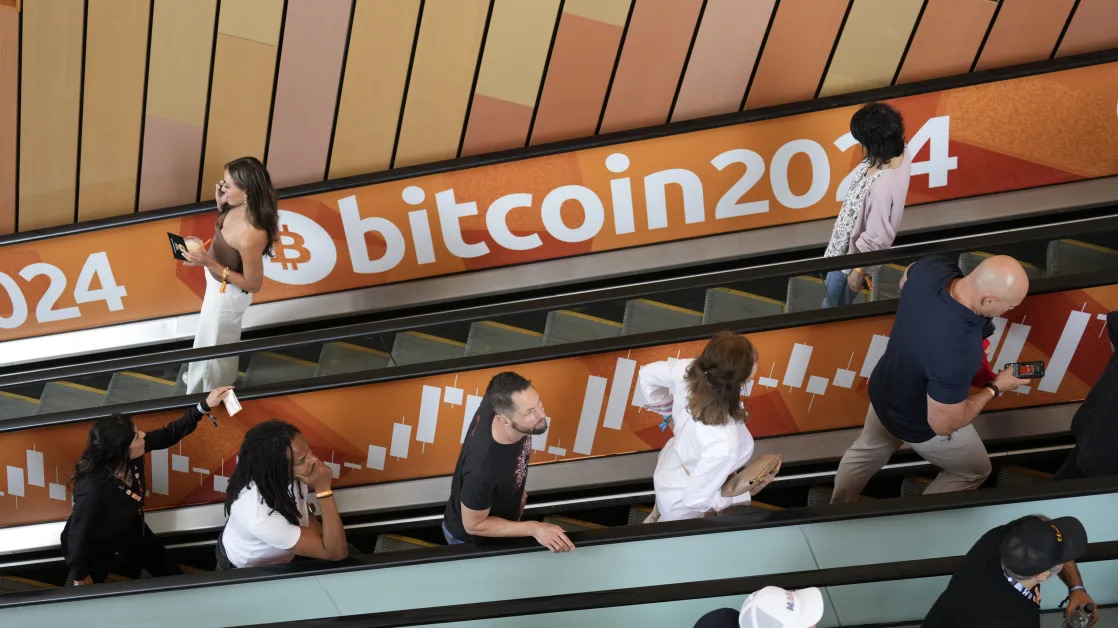(Bloomberg) -- Chinese quantitative hedge funds saw a strong rebound in the final quarter of 2024, saving the industry from an otherwise bruising year marked by record drawdowns and regulatory clampdown.
On average, quant long-only products beat stock market benchmarks by 9.9 percentage points last year, mostly on the back of returns in the fourth quarter, according to data compiled by Shenzhen PaiPaiWang Investment & Management Co.
That has prompted investors to chase top performers and put money into such vehicles again. Definite Capital Management’s index-enhanced product, which tracks the CSI 500, beat the gauge by nearly 50 percentage points. It raised 1.5 billion yuan ($205 million) within minutes when its product went on sale at Guotai Junan Securities Co. in late December.
Yanfu Investments LLC, which emerged in June as one of the biggest winners from the industry shakeup, became the biggest quant fund in China, expanding its assets by at least 25% to more than 70 billion yuan since April last year, according to people with knowledge of the matter, who requested not to be identified discussing private information.
Saved by Rebound
China stocks rallied in late September, after the government issued more measures to support the economy. That helped fuel liquidity and temper price swings, allowing computer models to readjust and pull quants back from the brink.
The recovery boosted Guotai Junan Futures Co. analysts’ confidence in the sector. The growing dominance of retail investors in China’s stock market means there will be ample mispriced opportunities for quant funds to trade on, analysts led by Qu Xinrong wrote in a Dec. 27 report.
“We believe that Alpha strategies still have a solid foundation for profitability,” they wrote.
Such optimism was rare early last year. Quants suffered steep losses during a stock meltdown when their favorite small caps collapsed. It dragged down index-enhanced products while state-led buying pushed up broader indexes, catching funds off guard. Regulators also imposed trading restrictions, punishing a few quants for violations, and phasing out a star strategy before tightening rules on programmed trading.
The combined assets under management of quant firms slumped 20% in the first three quarters of last year to 1.3 trillion yuan, according to estimates by Citic Securities Co. Their market share fell to 26% as of the end of September from 29% as of end-2023.
Then in late September, a blitz of government stimulus measures fueled the biggest stocks rally in more than a decade. While an initial surge short squeezed market-neutral products and some funds even faced liquidation, the rebound held ground as retail investors rushed back in and liquidity stayed at elevated levels. That brought fresh opportunities for quants, especially boosting returns at high-frequency trading firms.
Fund Rebound
For Definite Capital’s CSI 500 enhanced index fund, the final quarter contributed more than half of its excess returns for the full year. The strategy covers about 2,000 stocks and its model makes predictions every minute for share price movements in as soon as the next hour.
“The key was that the market recovery brought more trading opportunities, allowing us to capture some impressive alpha,” Chief Executive Officer Jiang Linhao said in an interview. While the fund already outperformed earlier in the year, the rally in October “did bring us some surprise.”
The fund’s 49.7% excess return made it the top ranking strategy tracking the CSI 500 among quants managing more than 500 million yuan, according to PaiPaiWang.
Shanghai QuantPi Investment Ltd. more than tripled assets last year to 15 billion yuan, underpinned by its focus on delivering high risk-adjusted return that attracted new investors, said founder and Chief Executive Officer Sun Lin.
Sun set up QuantPi with co-founder Yu Hang in 2019, and built models with strict risk controls that allowed stable performance throughout the extreme periods last year.
QuantPi funds averaged a 24% return last year, ranking it No. 4 among hedge funds managing more than 10 billion yuan. Its enhanced index fund based on the CSI 1000 beat the gauge every month, generating a combined 22.4 percentage points excess return for the year, according to PaiPaiWang data.
Hangzhou-based Longqi Scientific Investment’s CSI 2000 enhanced index fund, launched at the end of 2023, also recorded an excess return of almost 50% last year, after beating the gauge every month. The company said it recently started fundraising through distributors and has received “strong interest” from investors.
High-Frequency Trading
The rebound in liquidity significantly bolstered performance of high-frequency trading, which struggles to generate excess return in the A share market when daily turnover is below 800 billion yuan, according to Zheshang Securities Co.
The elevated turnover level this year could lift the annualized excess return of high-frequency strategies by about 12.5 percentage points, analysts led by Chen Aolin wrote in a report in November.
Tech stocks could contribute more alpha to high-frequency strategies, while undervalued cyclical shares provide trading opportunities for quants examining company fundamentals, according to the Guotai Junan Futures report.
High-frequency trading still faces the threat of a tenfold fee hike, as officials weigh on reining in strategies deemed to hold unfair advantages over retail investors. Regulators so far have refrained from imposing the “differentiated” fee, months after new rules on programmed-stock trading went into effect in October. Most of the high-frequency traders’ accounts don’t meet regulator’s threshold for restrictions, the Zheshang Securities report said.
This year promises to be a better one for the quant industry and top performers will gain more market share, QuantPi’s Sun said.
Last year’s market swings provided “precious data” for the survivors to train their models with, he said. “If such events happen again in the future, we will be in a stronger position.”




